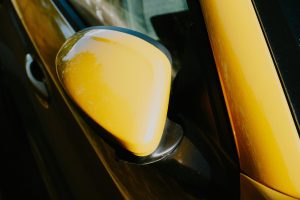Startups Are Disrupting the Traditional Auto Industry
It’s no secret that technology has drastically changed the way we live our lives, affecting everything from the way we communicate to the way we shop. But one industry that has been particularly impacted by these advancements is the auto industry. With the rise of startups, traditional automakers are facing major disruptions to their long-standing model of operating, challenging the status quo and forcing them to adapt in order to stay competitive. Today, we’ll take a closer look at how startups are shaking up the traditional auto industry and what it means for the future of transportation.
The Rise of Startups in the Auto Industry
In recent years, a wave of startups has emerged in the auto industry, offering innovative solutions to various aspects of the traditional model. One such example is Tesla, which has revolutionized the market with its electric vehicles and autonomous driving technology. By challenging the dominance of traditional automakers, startups like Tesla have been disrupting the industry and pushing for change.
But it’s not just in the realm of electric vehicles that startups are causing a stir. Many other companies are also changing the game in areas such as ride-sharing, vehicle connectivity, and mobility services. Take Uber and Lyft, for instance, which have disrupted the taxi industry with their user-friendly apps and affordable prices. Or companies like Zipcar and Car2Go, which offer flexible and convenient car-sharing options.
The Impact on Traditional Automakers
The rise of startups in the auto industry has put traditional automakers under immense pressure to keep up. With their innovative approaches and advanced technology, startups are able to offer consumers more efficient, convenient, and cost-effective solutions than traditional automakers. This has forced traditional automakers to adapt and incorporate new technologies and business models in order to stay relevant.
For instance, many traditional automakers are now investing heavily in electric and autonomous vehicle technology in order to stay competitive with companies like Tesla. They are also exploring new avenues for revenue, such as creating their own ride-sharing or car-sharing services, in response to the success of startups in this space.
The Benefits for Consumers
With startups disrupting the traditional auto industry, consumers are ultimately the ones who benefit the most. Not only do they have a wider range of options for transportation, but these options are often more convenient and cost-effective. Additionally, the competition between startups and traditional automakers has resulted in a push for more innovative and sustainable technologies, leading to a cleaner and more efficient transportation landscape.
Moreover, startups are also challenging the traditional model of car ownership. With the rise of services like ride-sharing and car-sharing, consumers no longer have to bear the expenses and responsibilities of owning a car. This has major implications for the environment, as it reduces the number of vehicles on the road and promotes more sustainable modes of transportation.
The Future of the Auto Industry
There’s no denying that startups are disrupting the traditional auto industry, and their impact will only continue to grow. As technology continues to advance, we can expect to see even more startups enter the market, challenging traditional automakers and pushing for further innovation. This will lead to a more diverse and dynamic auto industry, with a greater emphasis on sustainability and consumer-centric solutions.
In Conclusion
The rise of startups in the auto industry is an exciting development that promises to transform the way we think about transportation. By challenging the traditional model, startups are pushing for innovation and creating a more competitive market, ultimately benefitting consumers. As we look ahead to the future, it’s clear that startups will continue to play a major role in shaping the auto industry and driving it forward into a new era.









